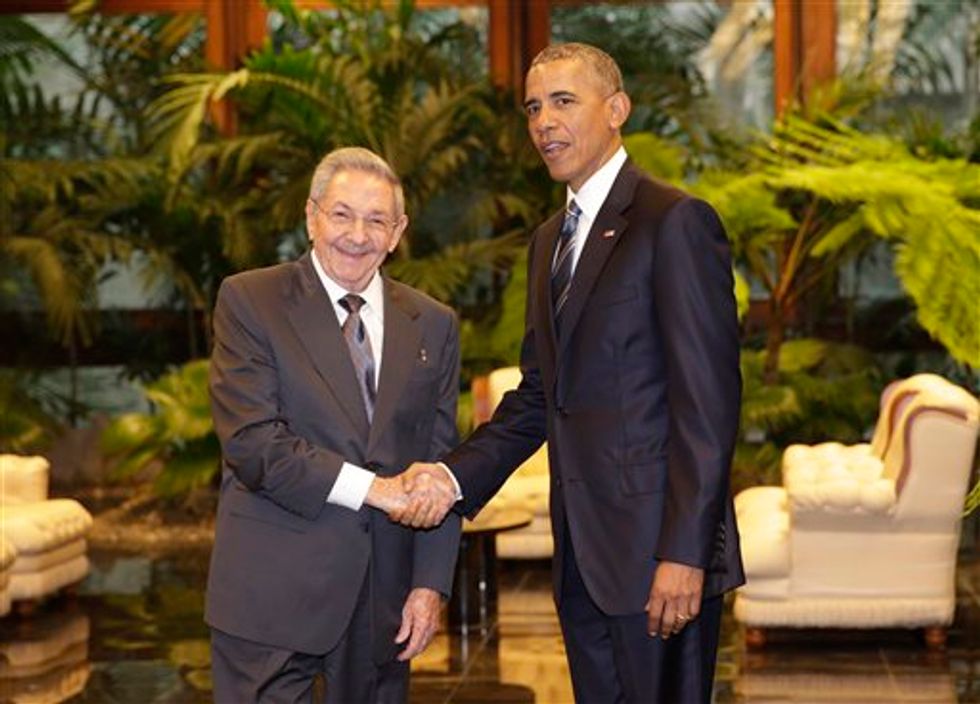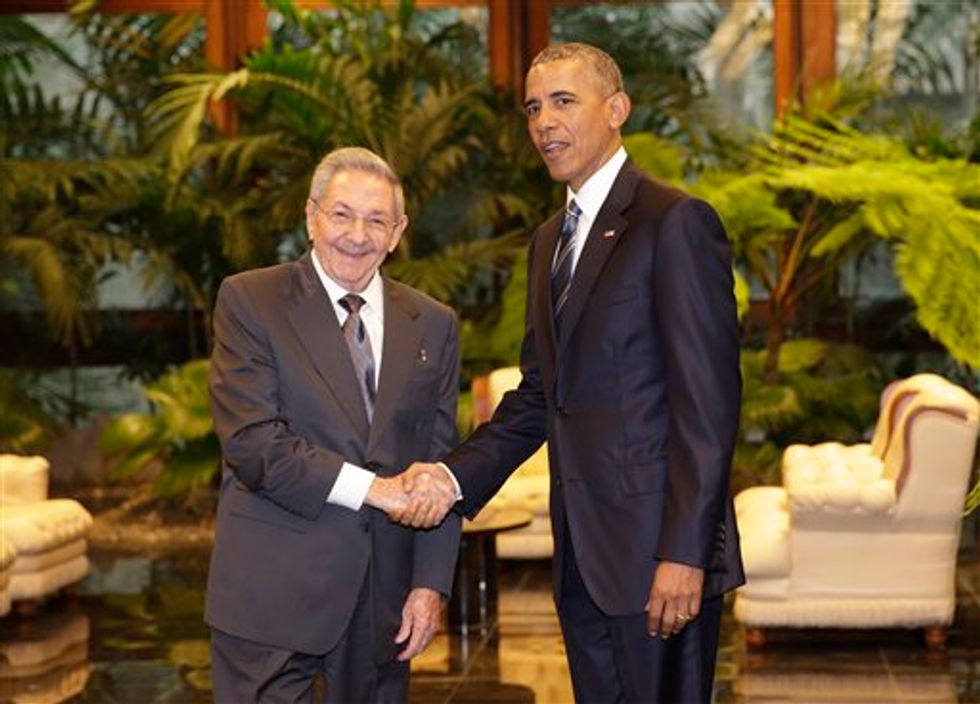HAVANA (AP) -- Cuban President Raul Castro called on President Barack Obama on Monday to lift longstanding U.S. trade and other restrictions as he and Obama pledged to move forward with normalizing relations between Cuba and its longtime Cold War-era foe.
 Cuban President Raul Castro, left, shakes hands with U.S. President Barack Obama during a meeting in Revolution Palace, Monday, March 21, 2016. Brushing past profound differences, President Obama and President Castro sat down for a historic meeting, offering critical clues about whether Obama's sharp U-turn in policy will be fully reciprocated. (AP Photo/Ramon Espinosa)
Cuban President Raul Castro, left, shakes hands with U.S. President Barack Obama during a meeting in Revolution Palace, Monday, March 21, 2016. Brushing past profound differences, President Obama and President Castro sat down for a historic meeting, offering critical clues about whether Obama's sharp U-turn in policy will be fully reciprocated. (AP Photo/Ramon Espinosa)
"This is a new day," Obama said, standing alongside Castro after their meeting at Havana's Palace of the Revolution.
In a history-making meeting in Havana, Castro praised Obama's recent steps to relax controls on Cuba as "positive," but deemed them insufficient. He called anew for the U.S. to return its naval base at Guantanamo Bay to Cuba and to lift the U.S. trade embargo.
"That is essential, because the blockade remains in place, and it contains discouraging elements," Castro said.
Obama came to Cuba pledging to press its leaders on human rights and political freedoms, and vowing that the mere fact of a visit by an American leader would promote those values on the island. Castro worked to turn the tables on Obama by saying Cuba found it "inconceivable" for a government to fail to ensure health care, education, food and social security for its people - a clear reference to the U.S.
"We defend human rights," Castro said. "In our view, civil, political, economic, social and cultural rights are indivisible, interdependent and universal."
Obama said he had raised "very serious differences" the U.S. has with Cuba on democracy and human rights, but portrayed those difficult conversations as a prerequisite to closer relations. Crediting Cuba for making progress as a nation, Obama said part of normalizing relations between the two countries means "we discuss these differences directly."
"The future of Cuba will be decided by Cubans - not by anybody else," Obama said. "At the same time, as we do wherever we go around the world, I made it clear the U.S. will continue to speak up about democracy, including the right of the Cuban people to decide their own future."
As Castro prepares to step down in 2018, he's held firm against any changes to Cuba's one-party political system.

 Cuban President Raul Castro, left, shakes hands with U.S. President Barack Obama during a meeting in Revolution Palace, Monday, March 21, 2016. Brushing past profound differences, President Obama and President Castro sat down for a historic meeting, offering critical clues about whether Obama's sharp U-turn in policy will be fully reciprocated. (AP Photo/Ramon Espinosa)
Cuban President Raul Castro, left, shakes hands with U.S. President Barack Obama during a meeting in Revolution Palace, Monday, March 21, 2016. Brushing past profound differences, President Obama and President Castro sat down for a historic meeting, offering critical clues about whether Obama's sharp U-turn in policy will be fully reciprocated. (AP Photo/Ramon Espinosa)





